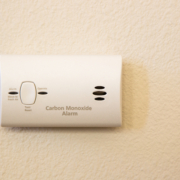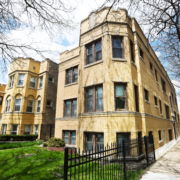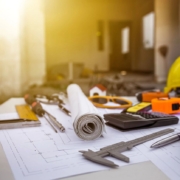Archive for year: 2021
What Every Homeowner Needs to Know About Carbon Monoxide Detectors
/in Owners /by Cory HallCongratulations homeowner! Let’s talk about safety, especially as it pertains to carbon monoxide detectors.
Carbon monoxide (CO) is a colorless, odorless, poisonous gas found in fumes produced anytime you burn fuel like oil, gas or coal. It can build up indoors and poison people or animals!
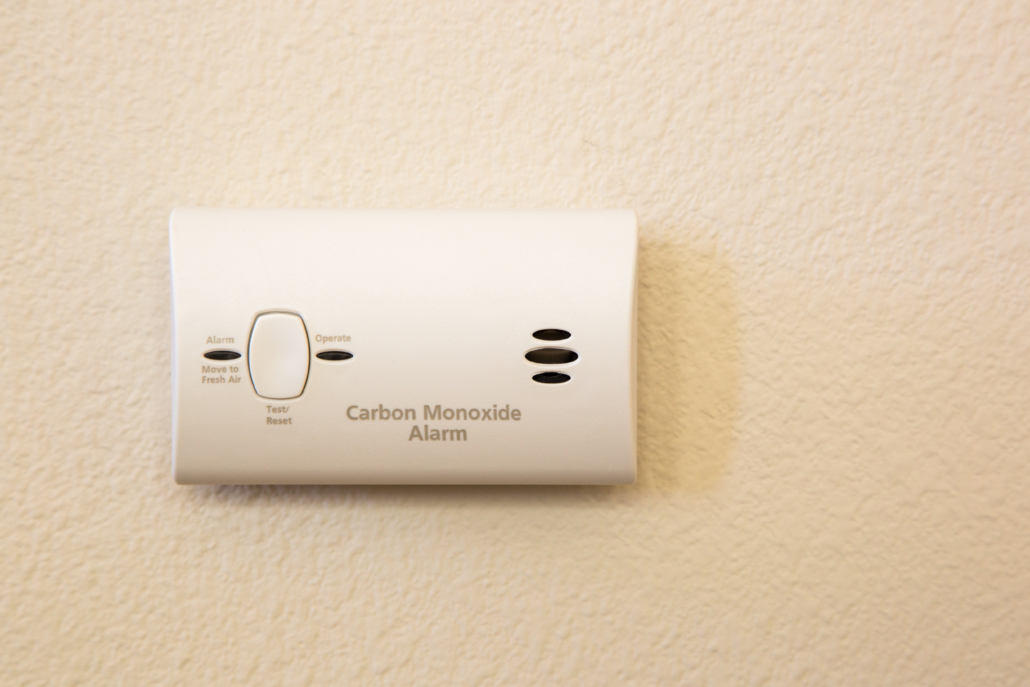
In a home, many potential sources can leak carbon monoxide including but not limited to cars, stoves, grills, fireplaces, gas ranges and furnaces. Early signs of CO poisoning can include headaches, dizziness, weakness, chest pain, confusion and more. Long-term exposure can make you pass out or kill you.
The most prepared homeowners can prevent a tragedy by following a few straightforward steps.
LAWS YOU SHOULD KNOW
As of 2007, an Illinois law called Public Act 094-0741 requires the placement of carbon monoxide detectors in every dwelling unit within 15 feet of every room used for sleeping purposes.
The rules about what kind of carbon monoxide detectors include battery-powered detectors and plug-in detectors with battery back-ups. Read the label carefully when you purchase yours to ensure it is a recognized device from a nationally recognized laboratory. Look for the “UL” symbol on the package!
Combination smoke detectors and carbon monoxide detectors are allowed too.
Are you a landlord? Be advised, as the owner of the property, you are required to supply and install the necessary CO detectors. Your tenants will be responsible for testing and general maintenance within their unit.
INSTALLATION BASICS
- Install a carbon monoxide detector within 15 feet of any room used for sleeping.
- Consider purchasing carbon monoxide detectors with battery back-ups in case you experience power outages.
- Don’t install a detector in enclosed rooms like the garage or a room with a furnace.
- Check your gas appliances to make sure they are vented properly. Consult the manufacturer’s instructions for each appliance for specific directions.
- If you have a chimney, make sure it is inspected and cleaned every year to prevent debris build up and reduce risk of CO poisoning.
- Never burn charcoal or use a portable gas stove indoors which can cause CO to build up!
Also, if your carbon monoxide detector goes off and you feel unwell, leave your house immediately and call 911. If it goes off and you don’t feel unwell, press the reset button and wait— if it goes off again, leave your house immediately and call 911.
How to Ramp Up Your Curbside Appeal
/in Owners, Preparing to Sell, Sellers /by Dominique HartsfieldAre you thinking of putting your home on the market? If so, ask yourself two questions from a buyer’s perspective. First: what would stop you from making an offer? Second: what makes this home stand out from a curbside view?
There are many important steps to preparing your home to sell. Curbside appeal projects provide sellers like you with the highest return on investment. Therefore, we recommend focusing on these 5 projects to ramp up those beautiful, exterior home aesthetics!
Update Your Curb Appeal
The National Association of REALTORS® “Remodeling Impact Report” suggests that landscaping projects often bring in higher sales prices. Homes that improved their landscaping or added a deck or patio, saw returns of investments above 100%.
We recommend starting with:
- Applying a fresh coat of paint to the front door.
- Trimming your bushes and other greenery.
- Re-mulching those garden beds.
- Replacing worn-down stone walkways and pathways.
- Removing any dead plants or trees.
- Aerating the lawn (if you have one).
- Pressure washing the exterior of your home, driveway and sidewalk.
In the end, any of these curbside appeal upgrades will help attract the eye of your home’s future residents!
FSBO vs. REALTOR®: How Should You Sell Your Home?
/in Preparing to Sell, Sellers /by Katie HowellYou’re ready to make the next move in your life to a new home, which brings up the task of selling your current house. You may be debating whether to sell the house on your own, For-Sale-By-Owner (FSBO), or to use a REALTOR®. You might think your best option is to sell it on your own, however, we argue that you might want to think twice about that decision. These are the top benefits and reasons you should use a REALTOR® to sell your home.
#1: REALTORS® Will Sell You Home For a Higher Price
Many sellers who choose the FSBO route believe they will be saving money in the long run by avoiding paying commission to a REALTOR®. According to the Nation Association of REALTORS’®(NAR) 2017 Profile of Homebuyers and Sellers, those who used a REALTOR® sold their home for between $60,000 to $90,000 more than FSBO. Even with commission costs, which are typically five to six percent of the home’s listing price, you will still be selling your home for more!
#2: REALTORS® Have the Time and Tools to Market Your Property
With a full-time job, family and other responsibilities, finding time for yourself can be hard, let alone finding the extra time to list and market your home. REALTORS® have the time (it’s their job!) and the resources (including dedicated property websites, built-in social media audiences, open house hosting experience and a broad network) to effectively spread the word on your home. Their expertise comes in handy for those who are unsure where to start when purchasing a home.
#3: Your Home Will Sell Faster When Working with a REALTOR®
Because of their access to time and tools to sell your home, using a REALTOR® will allow your home to sell faster. The NAR report found that most homes sold by REALTORS® were purchased 20 days faster than FSBO. If you’re on a timeline and need to sell quickly, getting these days back could mean a lot.
#4: REALTORS® Have Potential Buyers At Their Fingertips
How many people do you know who are looking to buy a home? REALTORS® have a full arsenal of potential homebuyers at their fingertips, from previous and current clients to those in their database and more. They have the ability to reach more people faster than an FSBO.
If you’re ready to get started with a REALTOR® to sell your home today, click here to begin your search.
5 Home Repairs To Make When You’re Ready To Sell
/in Home Maintenance Checklists, Owners, Sellers /by Dominique HartsfieldWhen you’re ready to sell, the goal is to work smarter, not harder, without overspending. The key is to pinpoint the most important home repairs, thus making the best possible return. Here’s our list of the top 5 home repair tips to consider when you’re ready to sell!
1. Fix Damaged Flooring
The first home repairs to consider are updating any damaged or outdated flooring to create a seamless feel throughout your home. Expect to spend about $3,000 on the project — and recoup 100% of the cost, according to the National Association of REALTORS® Remodeling Impact Report.
2. Repair Any Damanged Windows And Doors
Windows and doors need to do more than just look pretty, they also need to be functional! When buyers are touring your home, they will likely open and close windows and doors to ensure they work properly. Fix any creaking doors or cracked and squeaky windows prior to putting your home on the market.
3. Paint The Walls
Did you know that painting your walls is one of the lowest-cost home improvements? It also has the highest rate of return! Touch up your home with a fresh coat of neutral-colored paint. This will instantly give your home a fresh, updated feel.
4. Revive An Outdated Kitchen
Kitchen repairs can be very expensive, so the key is to make low-cost, high-impact repairs. Updating the hardware, installing new countertops or painting wood cabinets could do the trick.
5. Resuscitate A Dying Lawn
Your lawn is the first thing a potential buyer will see, so make a good impression! Nothing turns a potential buyer away faster than a lawn full of overgrown grass, brown patches or weeds. Consider hiring a lawn care service to get your lawn looking fresh, repair any patchy areas and pull any weeds.
What to Expect During A Closing: Buyers
/in Buyers, Financing /by Cory HallA closing is when you, the buyer, sign the final ownership paperwork and officially, legally become the owner of your home! You will leave your closing with the home’s keys.
Your closing date will likely be listed on the purchase and sale agreement you will sign after your offer is accepted. On average, closings are scheduled within a month or two of signing this document.
LEADING UP TO THE CLOSING
As the buyer, the days leading up to the closing will include reviewing lots and lots of paperwork. Try not to stress! Your REALTOR®, your lender and your attorney are there to assist you.
One of these documents is the Closing Disclosure (also called the CD) which lays out your final loan terms and closing costs. You will get your CD from your lender at least three days before closing for you to review.
The CD will ensure there are no surprise costs for you at the closing table. Compare this with your initial Loan Estimate when you applied for the loan, and if you see significant discrepancies, contact your lender at once.
What is the difference between closing costs and your down payment? While your down payment goes towards your home loan, closing costs are typically one-time fees that go towards all the other services that take place during the transaction such as:
- Loan application fees
- Appraisal fees
- Title search fees
- Your attorney’s fees
- Recording fees
- Lender costs such as underwriting, credit report and origination fees
- Commission for both the buyer’s and the seller’s agent
- Property taxes
If you’re nervous about how to accurately anticipate the closing costs, consult your loan estimate. It includes estimates for each of these line items. Also, Nerdwallet has a free, online calculator.

WHAT TO EXPECT DAY-OF
You will attend the final walkthrough of your home within 24 hours or the day-of your closing. Typically, you, your REALTOR® and the seller’s agent will attend as you make sure any and all request repair work was completed.
What are you looking for? You’re ensuring everything is functioning properly and that nothing has broken or been damaged since the inspection. Ask your REALTOR® for a list of what to look for during the final walkthrough. If everything is as it should be, you’re ready to close! If you see anything amiss, you and your REALTOR® will contact your attorney and the seller’s agent to negotiate potential compensation for the problems at the closing table.
What should you bring to the closing table? A pen, a government-issued photo ID and a cashier’s check or proof of wire transfer to cover the closing costs and any remainders of the down payment. Ask your attorney how much you should pad for potential closing costs increases such as prepaid interest.
Note: bringing “cash to close” does not mean you should bring cash!
Depending on your state or personal circumstances, ask your attorney if you need to bring any other documentation such as proof of homeowner’s insurance.
AT THE CLOSING TABLE
Prepare yourself to sign a large stack of paperwork! Your attorney will go through each one of these documents, although you will also receive them the night before to review them in greater detail.
Depending on a number of factors, closings can last between an hour to several. You as the buyer can help prevent unnecessary delays by avoiding changes to your financial situation such as large purchases on your credit card, applying for credit or changing employers.
Who is there? At minimum, you can expect it to be you, your attorney and the lender. Depending on the circumstance, the seller may attend if they haven’t already signed their necessary documents. No matter what, you are not alone. Your attorney and your REALTOR® are available to answer questions or address concerns.

WHAT’S NEXT?
You have your keys! You have officially purchased your home! Here are a few best practices to kick off your first hours/days as a homeowner on a strong note:
- Take your copies of the closing documents you signed and save them in a secure place.
- If you negotiated a same-day move with the seller, keep track of each key! Confirm you’re receiving one for any and all doors, mailboxes or entries.
- Prepare a list of authorities or organizations (like the U.S. Postal Service) you need to notify of your change of address, as it applies.
With constant communication and intentional preparation, your closing can feel like an exciting culmination of all your hard work, research and exploration. Utilize the team of professionals at your back so you can save on stress and celebrate this exciting milestone.
Meet Your Homebuying Squad
/in Buyers, Navigating the Transaction /by Cory HallThis group of professionals will help you throughout the homebuying process. As you assemble your homebuying squad, consider working with all of these experts to make your home purchase confidently and with minimal stress.
Like an athletic team, each member of the homebuying squad plays a crucial role in helping you achieve homeownership.
MEET YOUR REALTOR®
On this team, you are the captain, and this is your head coach. Your REALTOR® not only represents you, but also advocates for you and your interests during the transaction from start to finish.

Whenever you feel lost, confused, worried, stressed or curious, this person is your go-to resource. If they don’t have the answer, they will know how to get it for you! Sit down with your REALTOR® to build a homebuying game plan. Communicate your goals and priorities and establish a communication system you both are comfortable with.
Also, your REALTOR® may have lenders, attorneys and inspectors they can refer you to, though you are not required to use the people they recommend.
Best Practice Tip: CC or keep your REALTOR® in the loop whenever you communicate with someone on your homebuying team.
MEET YOUR LENDER
Your lender is like your athletic trainer. This is the person who can help you determine your buying power based on your financial health.
Great questions to ask your lender include:
- What types of loans am I eligible for?
- How can I work on my financial health to qualify for each kind of loan?
- When should I get prequalified or preapproved? (And what’s the difference between the two!?)
- And more!
Connect with a lender as early as possible in the homebuying process. That way, there are no disappointing surprises down the road based on your financial limitations.
MEET YOUR ATTORNEY
Your attorney is like your defense. This is the person who will review all the paperwork and contracts during the transaction. They will communicate your requests and advocate for your interests with the other party’s attorney.
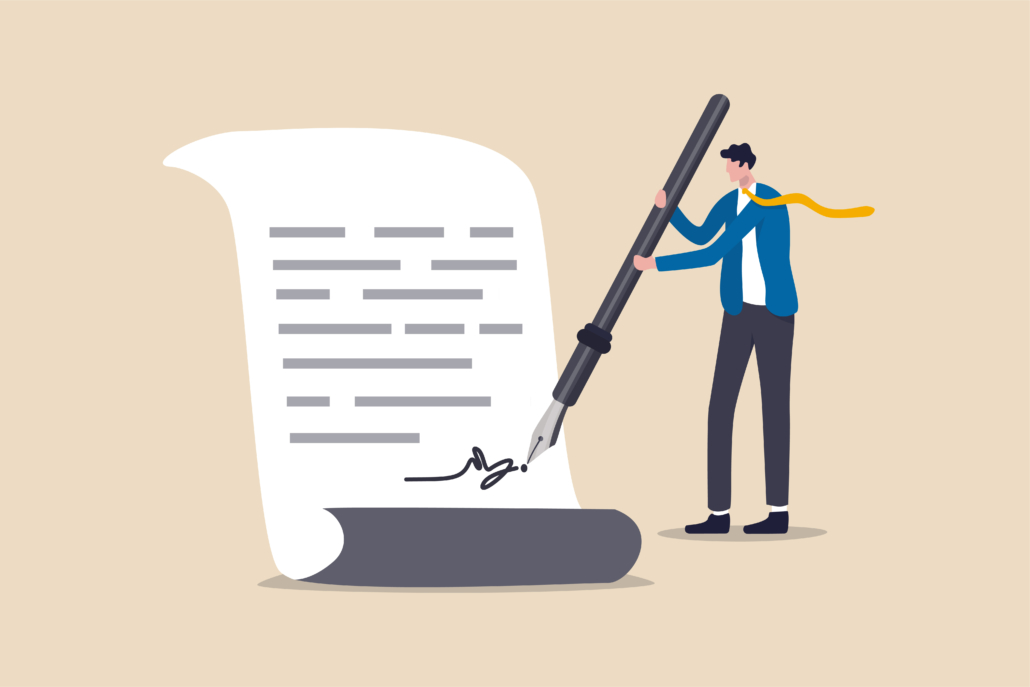
Your attorney will become more involved in the transaction as soon as you’re ready to make an offer on a property. Once the offer is accepted and you move through attorney review and the inspection, you and your REALTOR® will be regularly communicating with your attorney and the seller’s attorney.
On closing day, they will also sit down with you at the closing table to take you through each document.
Buyer Best Practice: Use an attorney who specializes in real estate. It can be tempting to use a friend, family member or acquaintance who is a practicing attorney in another specialty, however, real estate attorneys are well-versed in the intricacies of the real estate transaction.
MEET YOUR INSPECTOR
Your inspector is like your special teammate. They have a very specific, yet very important, purpose in the transaction: inspecting your future home for damage, financial or physical risk, or code violations.
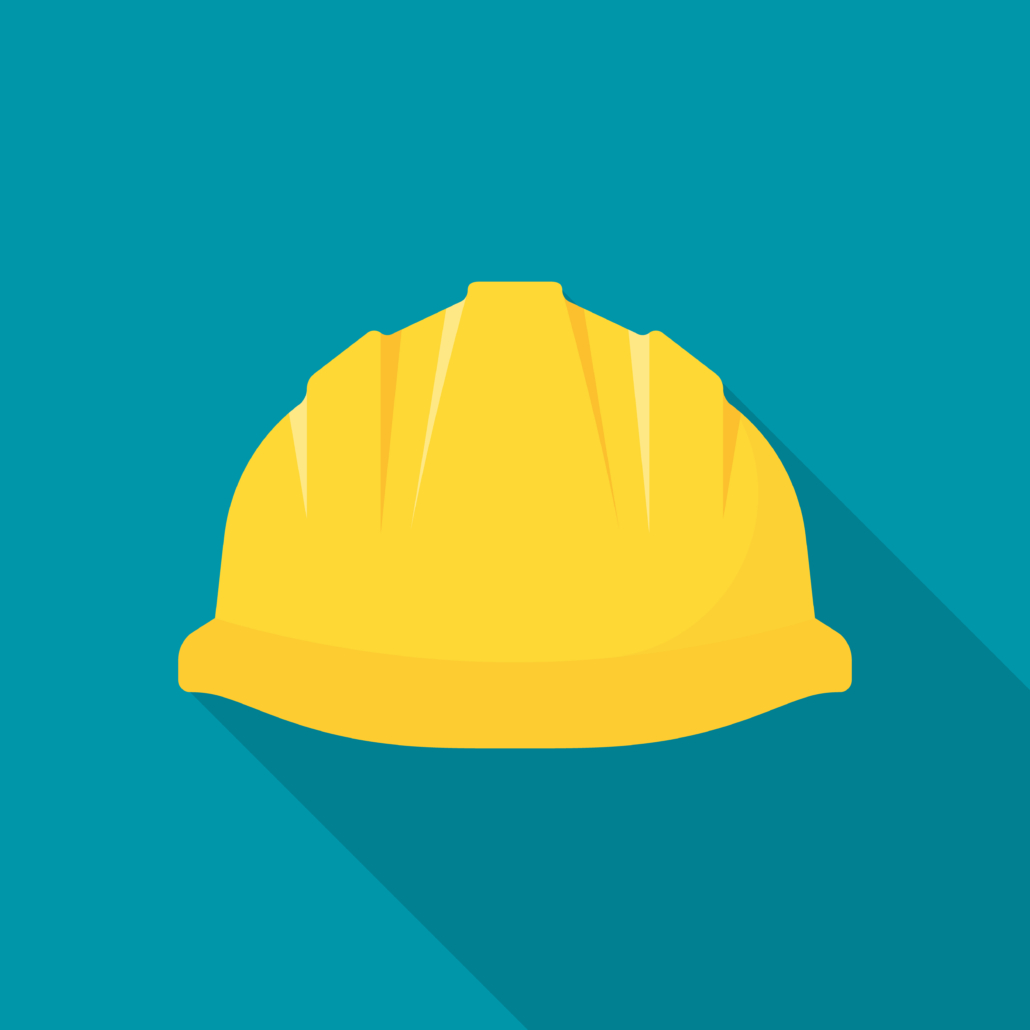
While inspections are not mandatory, they are highly encouraged as they allow you to proceed with your home purchase as informed as possible.
Once the inspection is complete, they will send an inspection report. Don’t be afraid to ask your REALTOR® questions about the contents of it! If you have a list of requested repairs or credits, this is what you’ll communicate to your attorney.
BONUS: YOUR FAMILY & FRIENDS
We can’t leave out your fans and supporters! It’s up to you how involved you would like your friends and family to be in the homebuying process. Whether they’re actively on the homebuying squad or simply on the guestlist for your eventual housewarming party, friends and family can provide helpful perspectives or advice.
No matter what, you are not going through the homebuying process alone. You have a whole squad of experts who have your back!
Jefferson Park
/in Neighborhoods /by ChristineNeighborhood information goes here.
Norwood Park
/in Neighborhoods /by ChristineNeighborhood Information goes here.


